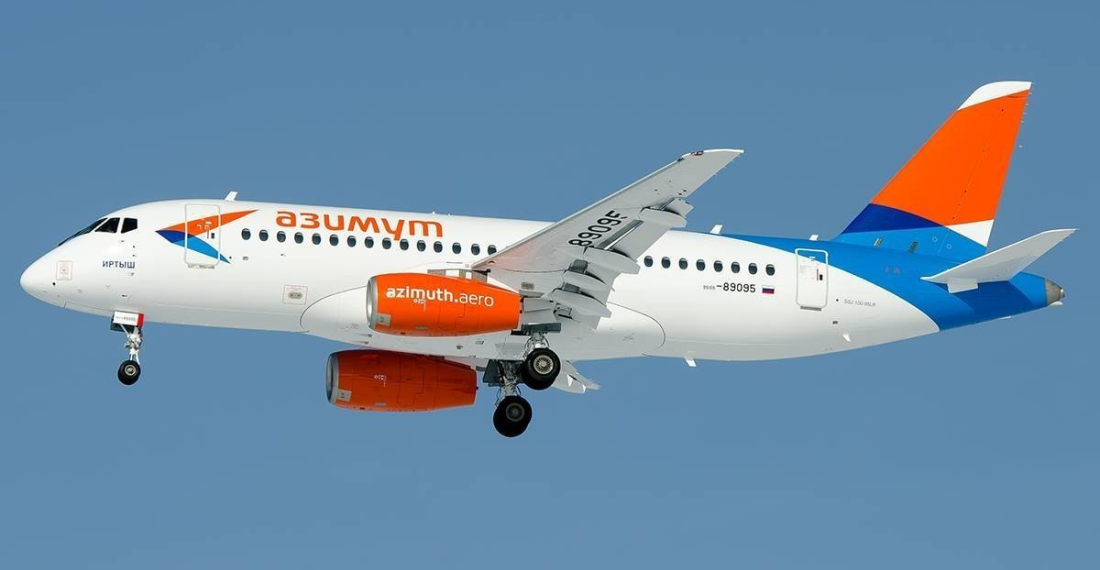The Georgian Civil Aviation Authority (GCAA) announced yesterday (15 May) that Azimuth Airlines will start operating flights between Moscow and Tbilisi from 17 May.
On Wednesday (10 May), Russian President Vladimir Putin reversed a 2019 ban on Russian airlines flying to Georgia, prompting many Georgian politicians to insist that no Russian airlines under international sanctions would be permitted to operate flights to Georgia.
Georgian Prime Minister Irakli Garibashvili said that his government's "unequivocal" position was that "flights with sanctioned aircraft will not be carried out. This will happen only with planes and companies not under sanctions", he said.
Meanwhile, the ruling Georgian Dream party head Irakli Kobakhidze stressed that "the Georgian Government will not allow circumvention of the sanctions".
The GCAA statement from yesterday reads: "The Civil Aviation Agency of Georgia issued the necessary permission to the airline today, on May 15. As of today, Azimuth Airlines is not on the European Union blacklist. In accordance with the flight application submitted by the airline to the Civil Aviation Agency, flights on the Moscow-Tbilisi-Moscow airline will be performed from May 17 of this year, seven times a week."
Azimuth Airlines' aeroplane supplier and President under EU santions
While Azimuth Airlines is indeed not on the EU's blacklist of 21 Russian Airlines, the company producing their aeroplanes has been sanctioned since the initial weeks of Russia's full-scale invasion of Ukraine.
Azimuth Airlines has a fleet of 15 Sukhoi Superjet 100 aeroplanes, which are manufactured by United Aircraft Corporation, a Russian aerospace and defence corporation.
United Aircraft Corporation has been under EU sanctions since 15 March 2022, when Brussels unveiled a fourth package of sanctions against Russian individuals and companies.
In the official EU documents outlining the fourth package of sanctions, the EU writes:
"United Aircraft Corporation is a Russian manufacturer of civil and military aircraft. Together with its affiliate companies it controls 100% of Russia’s military aircraft production. The fighter aircraft produced by United Aircraft Corporation were used by Russia during the illegal invasion of Ukraine in 2022. Therefore, United Aircraft Corporation is responsible for supporting, materially or financially, actions which undermine or threaten the territorial integrity, sovereignty and independence of Ukraine."
Meanwhile, United Aircraft Corporation's President, Yuri Slyusar, has been personally sanctioned by the EU since 8 April 2022. The EU writes:
"In his position as President of UAC, Yuri Slyusar is one of the leading actors in the Russian industry and defence sector with close ties to the Government of the Russian Federation. Yuri Slyusar is therefore a leading businessperson involved in economic sectors of the Government of the Russian Federation and has supported and benefitted from the Government of the Russian Federation."
source: commonspace.eu with agencies, European Union
photo: Azimuth Airlines






